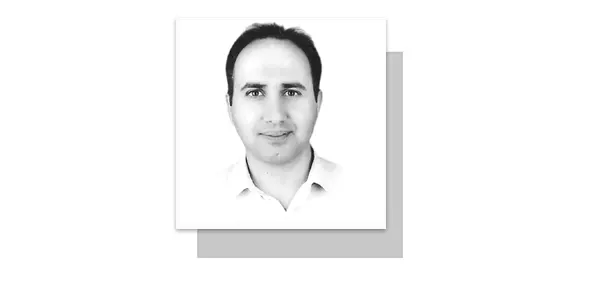DEMOCRACY is a system that promotes responsible governance, rule of law, human rights, civic participation and peaceful power transfer through electoral processes, fostering a stable and peaceful society. Despite much discussion and opposition over the nature of democracy, the majority of nations worldwide continue to operate under this system. Out of 167 countries worldwide, 96 have opted for democracy to govern their nations. If the figures are computed, 57% of nations have chosen democracy, 13% have chosen autocracy and 28% displayed characteristics of both autocracy and democracy. This enormous success and the quick development of democracy over the past four decades are inextricably linked.
Pakistan was established as a Nation-State to ensure the supremacy of the people, equal rule of law, active citizen participation in politics and protection of human rights. From the very outset, the founding father of Pakistan Muhammad Ali Jinnah emphasized the importance of equality of rights and freedom of faith. He stressed upon the need of a Constitution based on consensus, aiming to achieve a high quality of democracy. Post Jinnah’s death, political polarization and strife led to delays in framing the Constitution. The Objective Resolution, which remains a preamble of the 1973 Constitution, outlines the principles of democracy, freedom, equality, tolerance and social justice as enunciated by Islam. Nevertheless, democracy exists as a temporary transition between quasi or full-blown military rule in Pakistan. Over 32out of 76 years of Pakistan’s history were plagued by martial law, with constitution abrogated or suspended, denying fundamental rights to citizens, resulting in immeasurable losses to democracy. On top of that, there has been a kind of quasi-democracy in the country since 2008, where strong but unelected and unaccountable state institutions, particularly the military and judiciary, have undermined, sabotaged and destabilized democratic administrations.
Pakistan has experienced numerous political, economic, institutional, democratic and social upheavals due to military intervention, political polarization, authoritarian leadership, bureaucratic red tape, constitutional crisis, feudalism, mismanagement, accountability rhetoric and underperforming Judiciary. Economic and social issues have arisen in Pakistan as a result of the public’s declining faith in democracy and the military. Electoral rights have suffered as a result of the political and military establishment in Pakistan being accused of interfering with the electoral process. In the line of kowtowing to the military, the elected governments have been undemocratic, where democracy is not just about elections but suppressing the opposition and hushing the media. This has led to a domination of parties with no inner party democracy, paralyzing policy-making and creating dissatisfaction. It is no sarcasm that the political opposition in Pakistan always takes a holier-than-thou stance, insists on seeing the military establishment as its harbinger into power.
Pakistan’s institutional structure has to be drastically changed in order to maintain democracy. To achieve a future for the country, the basic rights of the people to govern themselves must be unreservedly and unequivocally recognized. Democracy is often confusing, but in Pakistan’s circumstances and the structures supporting it such as the Constitution, Parliament and Judiciary, have been systematically weakened. The Quaid’s ideals have been faded, making them questionable as a frame of reference. It would be a mistake to compromise further on his faith in democracy as the only course for Pakistan to follow. Pakistan’s deviations from universally accepted principles have made it an anachronism in today’s world moving towards political and social emancipation.
To develop democracy based on excellent governance, strengthening the democratic institution and implementing socio-political changes is crucial. A successful governance charter should include the rule of law, an accountability culture, institutional harmony, political stability and effective public service delivery. Political stability, political education, involved citizens, free, fair elections, merit-prioritizing political parties and a sense of public duty are essential for good administration. Institutional cohesiveness and responsiveness are crucial for nation growth, while a culture of accountability increases transparency and merit in national affairs. A just society emphasizes the rule of law and legal equity and good governance requires its enforcement.
Pakistan needs a unified vision based on its founding principles and 76 years of experience. Overhauling the Constitution to empower both the people and federating units is crucial. While provincial autonomy has been discussed, a realistic power division scheme is yet to be presented. Stability can be achieved by granting constituent units a significant stake, ensuring economic development in less privileged areas and devolving powers from the Centre. True democracy necessitates participation at all government levels, fostering freedom from want in urban slums and underdeveloped regions. Embracing democratic principles and norms is essential for a purposeful and productive future. Despite its flaws, shortcomings and setbacks, democracy is the only system of governance that can get Pakistan back on track. The majority of people’s freedom is best granted by democracy, which has continuously been demonstrated to be the most successful form of government. Democracy is a beneficial form of governance because it incorporates the roles and interests of many people in deciding how a nation is to be governed. Democracy is often chaotic, but if citizens are well-educated and elected leaders have the will to make tough choices, this chaos may be mitigated. All things considered, if freedom and civil rights are emphasized, it is difficult to argue that any form of governance is superior to democracy.
—The writer is PhD in Political Science and visiting faculty member at QAU Islamabad.
Email: zafarkhansafdar@yahoo.com
views expressed are writer’s own.









